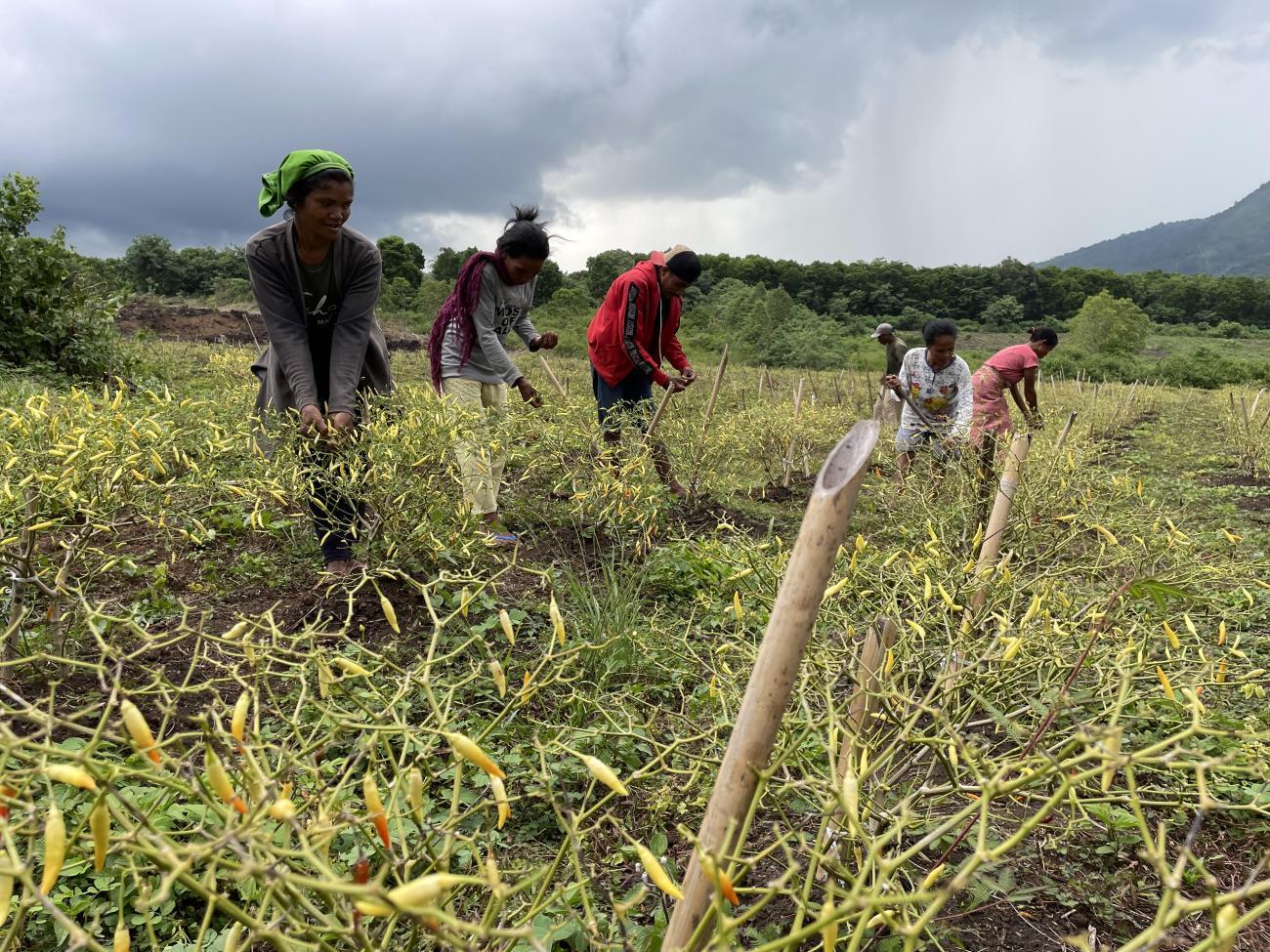At the start of Ramadan let’s focus on solidarity with future generations

As Ramadan is about to begin, the world’s 2 billion Muslims will focus on the core values of the holy month: helping the poor and committing oneself to the service of others. These are values that are at the heart of many religions – and also are core values of the United Nations. The UN, including here in Indonesia, works to serve those less fortunate, under the motto to Leave No One Behind.
Committing oneself to the service of others includes future generations. Taking care of our planet to make sure it remains habitable and can support life on earth as we know it for those who come after us is one of our key responsibilities.
“Future generations” refers to people who will come after us, those who are not yet born. More than 10 billion people are projected to be born before the end of this century alone, predominantly in countries that are currently low- or middle-income. As the global population is expected to grow, we need to ensure that sufficient resources remain available to them. The lives of the future generations, and their ability to effectively enjoy human rights and meet their needs are strongly determined by today’s actions. Do we over-exploit the resources of the planet or do we only take as much as we really need and use resources sustainably, bearing in mind the generations to come?
At a time when millions of Indonesians are going to gather for iftar with friends and family evening after evening, let us pause for a moment to think not only about those who have passed away but also about those not yet with us.
As the UN Secretary General’s Our Common Agenda policy brief “To think and act for future generations”, released last week, makes it abundantly clear, stopping climate change and pollution ARE our prime tasks when it comes to serving those not yet born. And the world is failing in these tasks – and needs to do more, much more.
Another UN report, released by the Intergovernmental Panel on Climate Change just this week, points out that we are currently on track to a global warming of 2.8 degrees above pre-industrial levels. That is much above the Paris Agreement’s goal to keep global warming to “well below” 2 degrees Celsius. Countries have made commitments to reduce emissions but are not fulfilling them.
Indonesia is among the few countries that heeded the call to strengthen their Paris Agreement commitments last year. In November, the government announced a new set of targets, with more ambitious climate change mitigation goals than before, including a commitment to generate over a third of the country’s energy from renewables as early as 2030.
The UN in Indonesia supports the government in its plans to meet climate commitments and balance the needs of current and future generations through development that is sustainable. We advise the government on climate financing. We support PLN in modernizing its Java-Madura-Bali power grid, so that it can take in more electricity from intermittent renewable sources like solar and wind. We support Transjakarta in its plans to convert its 10,000-strong bus fleet to electric buses.
Late last year, the government, the UN and development partners signed the National Blue Agenda Actions Partnership in support of Indonesia’s plans to create a more sustainable ocean-based economy. Eight UN agencies and several donors work in tandem with the government to ensure that the sea can provide livelihoods to coastal communities not only today but also tomorrow. A sustainable blue economy is vital for Indonesia as it helps boost revenues from ocean-based activities while conserving marine biodiversity and the health of the ocean through the restoration, sustainable use and protection of marine ecosystems.
The world needs more partnerships like this, so that we can safeguard the planet for those who are not yet born. A UN General Assembly resolution adopted last September calls for a Summit of the Future in 2024, where world leaders are expected to agree on multilateral solutions for a better tomorrow, strengthening global governance for both present and future generations.
May the values embodied by Ramadan—peace, compassion and generosity—prevail during this holy month, and throughout the year, and the years, decades and centuries to come.
This blog was written by UN Resident Coordinator in Indonesia Valerie Julliand. It was originally published as an op-ed in the Jakarta Post. To learn more about the work of the UN in Indonesia visit Indonesia.un.org













